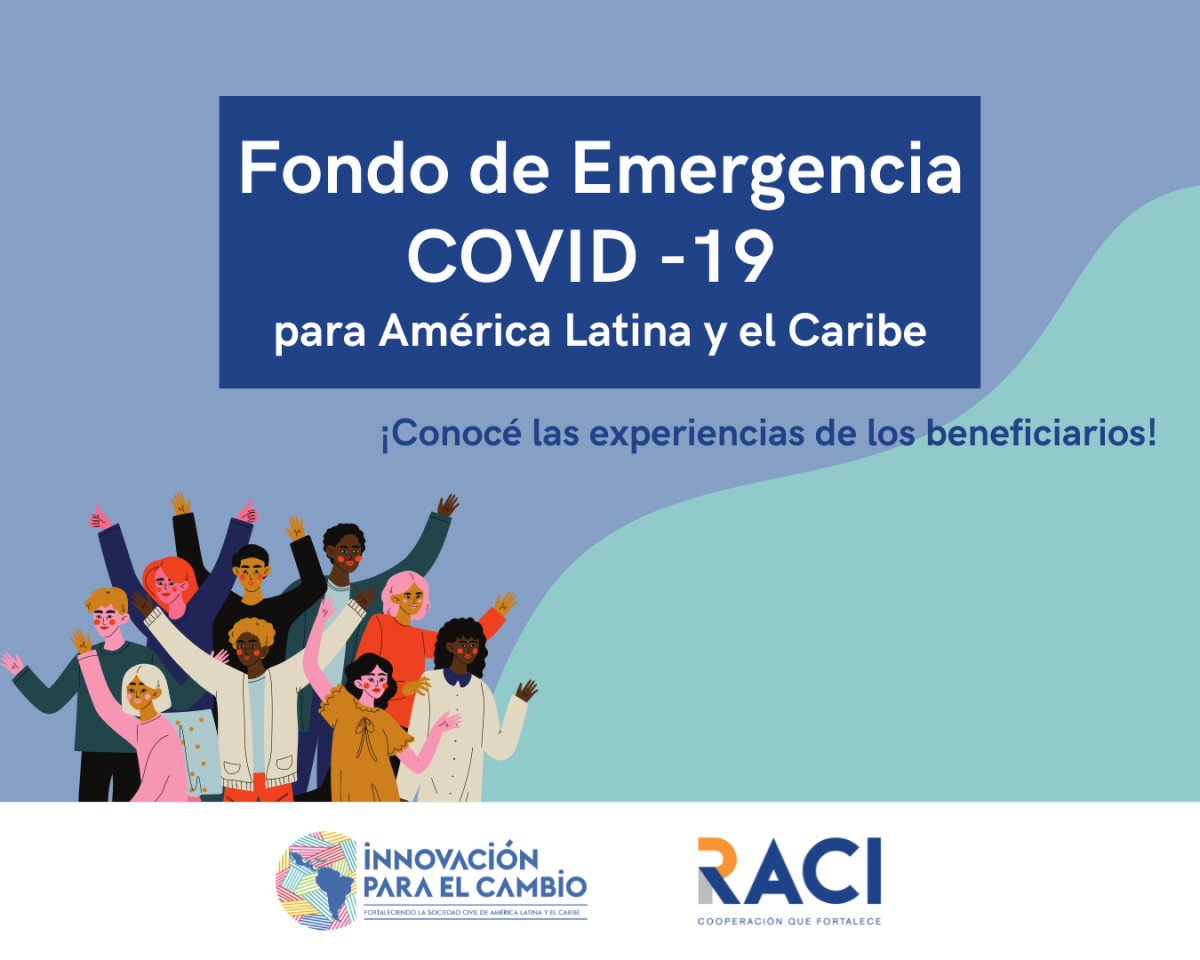As part of the Covid-19 Emergency Fund for Latin America and the Caribbean, 15 organizations received up to US$5,000 to develop projects in the axes of: Access to Information; Transparency and accountability in the use of public funds used during the pandemic; and Monitoring access to public services. Projects were also expected to contribute to protecting public space with innovative initiatives that creatively address the community challenges faced during the COVID-19 pandemic. The projects also had to be sustainable and leave capacities in place in the CSOs.
Here are some of the questions and answers we received!
What did it mean for your organization to be a beneficiary of the Fund, and how do you think it was strengthened institutionally?
“For TECHO, it was the possibility of materializing a project that had been sought for several years and that was urgent to accomplish in order to broaden the understanding and visibility of the violation of rights and the situation of poverty in which millions of people live in popular settlements and, on the other hand, to connect realities and recognize the community building efforts that are carried out in these territories. We strengthened our capacity to provide the public with data on the reality of popular settlements in the region and, at the same time, it gives us the opportunity to continue being a reference organization on popular settlements issues”.
~ Fernanda Arriaza, TECHO’s Community Management Director (Chile)
Editor’s Note: Access the platform “Mapa de Asentamientos Populares” developed by TECHO by clicking on the following link.
“For the Fundación CIRD it meant an important contribution to the continuity of performing its social role in a difficult context for all organizations. This fund helped us to continue building human and social capital, important pillars of our mission life, and undoubtedly, it brought us even closer to our institutional vision, which is to be a leading organization that contributes to sustainable development in Paraguay.
We have been strengthened in our institutional communication through the workshops conducted, we understood the importance of what, how, when and why to make an efficient institutional communication.”
~ Francisco Javier Samaniego Cáceres, Project Coordinator at Fundación CIRD (Paraguay)
Editor’s Note: Visit their website.
Could you mention three positive changes brought about by the project that are sustainable over time?
According to AMATE, they were provided with “tools to improve internal and external communication through different training spaces facilitated by the project’s Coordinating Team.
The organization’s capacities in monitoring and advocacy were strengthened through the participation of part of the team in the training process ‘Bases for the democratization of international financing of public projects in El Salvador’ implemented with the technical support of The Bank Information Center.”
Finally, it promoted the “Creation of the Articulation for the democratization of public financing, as a result of the aforementioned training process, which has multisectoral participation”.
~ Karla Castro Rosales, Chief Executive Officer at AMATE (El Salvador)
Editor’s Note: Visit their Facebook Account.
What was the challenge you wanted to address with this project? To what extent was it exacerbated by the advent of the pandemic? What did you and your organization propose to solve it?
For the Asociación Cátedra de la Paz, the challenge they wanted to face with the project ‘Jóvenes Monitores Comunitarios en Incidencia Pública’ was “to offer young people a different perspective on the problems of public services in Venezuela, which affect their development as citizens. Personally, I wanted young people to see that these problems that Venezuelans suffer for multiple reasons are not seen as normal in the life of each person. With the COVID-19 pandemic, the problems of public services that have worsened our quality of life have been accentuated, together with the Complex Humanitarian Emergency that we have been experiencing in recent years in Venezuela”.
~ Walter José Trejo Urquiola, General Coordinator at Asociación Cátedra de la Paz (Venezuela)
Editor’s Note: Visit their website.
What challenges did you encounter on the road to implementation?
For Fundación Nuestra Mendoza, “the great challenge has been to gain access to information without hindering the daily work of food assistance carried out by the Provincial Government but, at the same time, without ceasing to claim the citizens’ right to Public Information Access.
The context of the Pandemic has generated the need, on behalf of all the actors, to make extra efforts in the territory to be able to respond to the demands, which has occurred in a situation of decrease in the staff of the public sector (Licenses for isolation COVID 19) and a growth of canteens spaces that work in informality, result of the urgent needs. These two situations are very important aspects to consider when evaluating real possibilities of actions to be implemented at this time.”
~ Facundo Heras, Executive Director at Fundación Nuestra Mendoza (Argentina)
Editor’s Note: Visit their website.

